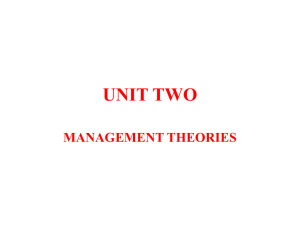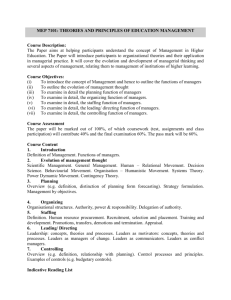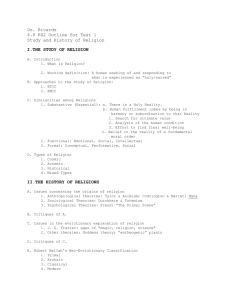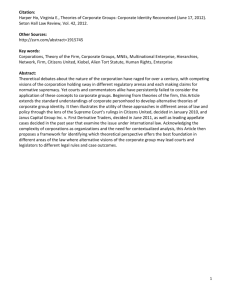Introduction to Theory of Organizations General description of the
advertisement
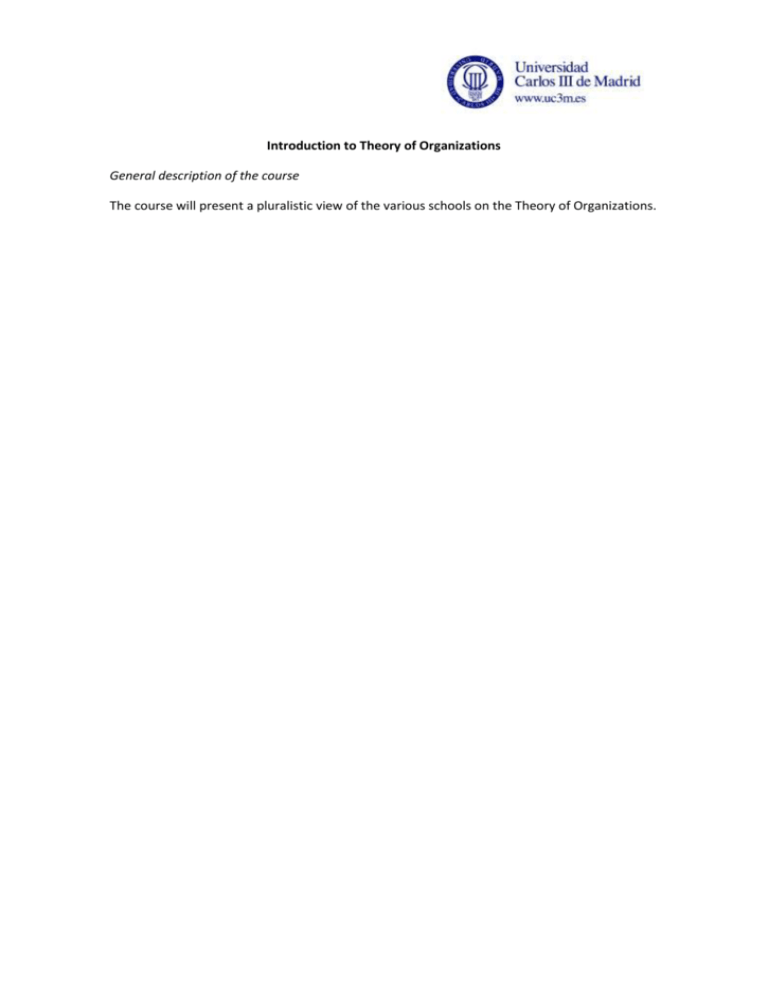
Introduction to Theory of Organizations General description of the course The course will present a pluralistic view of the various schools on the Theory of Organizations. Course Overview 1) Introduction: How to define and classify organizations a. Henry Mintzberg: Five types of organizational structure b. Amitai Etzioni A comparative analysis of complex organizations 2) Classical Theories of Organization a. Frederick Taylor Scientific Management b. Henri Fayol Administrative Theory c. Fordism d. Human Relations i. Elton Mayo Human Relations (Hawthorne experiments) ii. Chester Barnard The Functions of the Executive e. Human Resources School i. Frederick Hertzberg Motivation and hygiene ii. Douglas McGregor The human Side of Enterprise 1. Theory X 2. Theory Y (Abraham Maslow) 3. Theory Z (Deming & Ouchi) iii. Leadership 3) Political Theories a. Robert Michels: The iron law of oligarchies b. Michel Crozier c. Jerry Pfeffer 4) Rational Choice Theories a. Herbert Simon Bounded Rationality/ Organizations b. Transaction Cost Theory c. Agency Theory 5) Cultural Theories a. Institutionalism: i. Philip Selznick The Organization as Social Arena ii. Robert K. Merton: Ritualism b. Neo Institutionalism i. DiMaggio Institutional isomorphism c. Cultural approaches i. Geert Hofstede Cultures and Organizations 6) System Theories a. Daniel Katz & Robert Kahn The Social Psychology of Organizations b. Howard E. Aldrich Organizations and Environments Recommended readings Hodge, B. J. (1996). Organization Theory: A Strategic Approach. Prentice-Hall. Scott, W. R. (1981). Organization: Rational Natural and Open Systems. Prentice-Hall. Perrow, C. (1986). Complex Organizations: A Critical Essay. McGraw-Hill Publishers.
